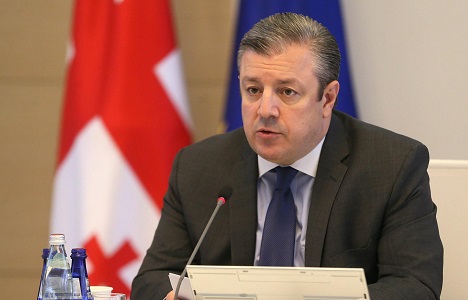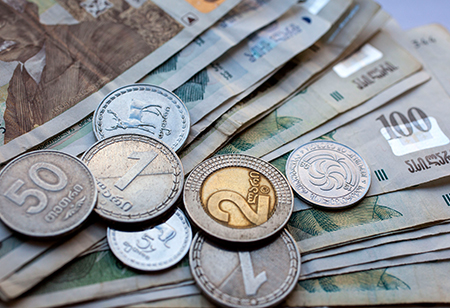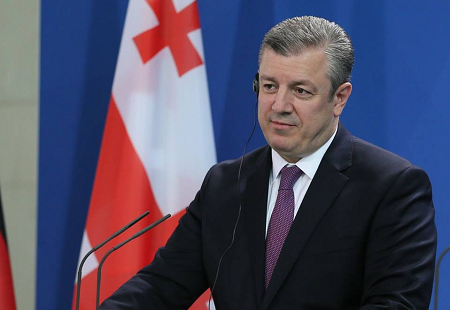PM announces ‘radical changes’ to boost economy at first Gov’t meeting
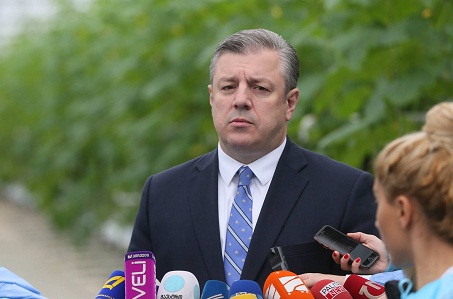
This afternoon Prime Minister of Georgia Giorgi Kvirikashvili hosted the first meeting of the new Cabinet of Ministers, where he said "radical changes" were needed to boost the country's economy and halt the devaluation of the national currency against the greenback.
Kvirikashvili noted regional economic growth had decreased from the second half of 2014 and according to international monetary organisations, key changes in regional economic growth were not expected in the short term.
So without radical changes it would be impossible for us to achieve high economic growth, which is essential for creating jobs and increasing the income of our people,” Kvirikashvili told the Ministers.
He noted from January next year a reform on income tax will come into play, which meant businesses would no longer be taxed if they reinvested their income.
In this case businesses in Georgia will maintain more than one billion GEL a year to reinvest. In the course of the following four years the change will create at least 40,000 new jobs in Georgia,” Kvirikashvili said.
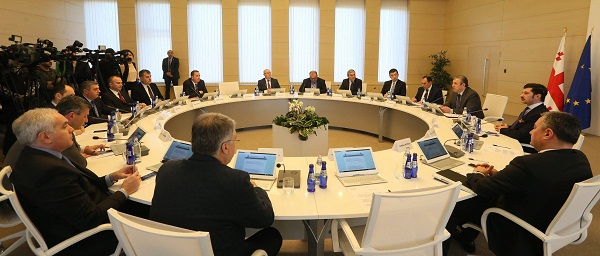
The first meeting of the new Government of Georgia was held this afternoon. Photo by the Prime Minister's press office.
The PM also announced:
- In 2017-2020 the Government planned to carry out infrastructural works worth more than 14 billion GEL. Eight billion of this would be spent improving roads to allow Georgia to boost its transit potential and become an important component of the New Silk Road.
- The Government planned to attract more than eight billion GEL from donors for the various infrastructure projects.
- Through infrastructural projects alone, 50,000 new jobs would be created with an average 1,000 GEL salary.
- The Government intended to construct 800km of new roads in four years.
- By 2020 the number of tourists visiting Georgia would reach eight million, calculations showed.
- The Government has already deceased salary financing for its subordinate organisations by 10 percent and administrative expenses were also reduced by 10 percent .
Meanwhile Kvirikashvili also spoke about next year's state budget. He noted the budget for healthcare and social assistance had increased by 200 million GEL, while the Ministry of Education would also receive an additional 150 million GEL.
More than 300 million GEL in additional funds would also be allocated to the Ministry of Infrastructure, said the Prime Minister.
"Painful but necessary changes”
Georgia's Prime Minister explained some of the changes set to come into play would be criticised by some however he said they were necessary for the overall benefit of the country and support a stronger local economy.
From January 1, 2017 excise tax on tobacco will increase, as well as for imported cars and oil products.
At the same time we will decrease excise tax on import of hybrid cars by 60 percent, while importing electric cars won’t be taxed at all,” Kvirikashvili said, noting this would encourage people to stop importing old, unsafe cars and instead buy or import a car that was cheaper to run and better for the environment.
Working together with the National Bank of Georgia
Kvirikashvili said officials from the Government of Georgia have held consultations with representatives from the National Bank of Georgia (NBG) regarding short and long-term steps to stabilise the national currency. Despite several efforts the Georgian Lari (GEL) was continuing to fall against the USD, with one USD equal to 2.53 GEL.
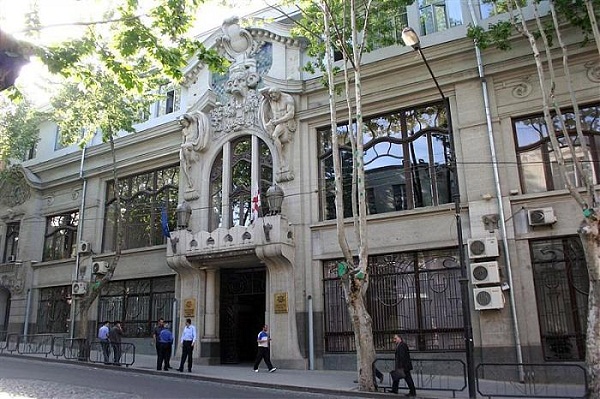
The Government was working with the National Bank of Georgia to ban the issuance of online loans.
The PM said the Government and the National Bank’s short term step included easing the loan obligations for a certain portion of Georgian citizens who had bank loans in US dollar.
This effort meant Georgian citizens who took a loan in US dollar before January 1, 2015 could convert their loan into Lari.
If the the exchange rate between Lari and US dollar is 2.50, the loan will be converted at a rate of 2.30,” Kvirikashvili said, adding the remaining 20 Tetri would be covered by the state budget.
Furthermore, from January 1, 2017 banks would be obliged to issue loans worth up to 100,000 GEL only in the national currency, while from 2018 the change would expand to loans up to 200,000 GEL.
These and other steps aimed to popularise the national currency, decrease the Georgian people’s dependence on foreign currencies and help stabilise the falling currency.
Kvirikashvili noted the Government had also discussed with the National Bank of Georgia a scheme for companies operating in Georgia to announce prices on their products initially in GEL, and only if they wish, add secondary prices in other currencies.
Another step was to ban the issuance of online loans.
"With the National Bank we also worked on amendments to ban issuing of online loans, which is a public demand,” Kvirikashvili said.
 Tweet
Tweet  Share
Share

